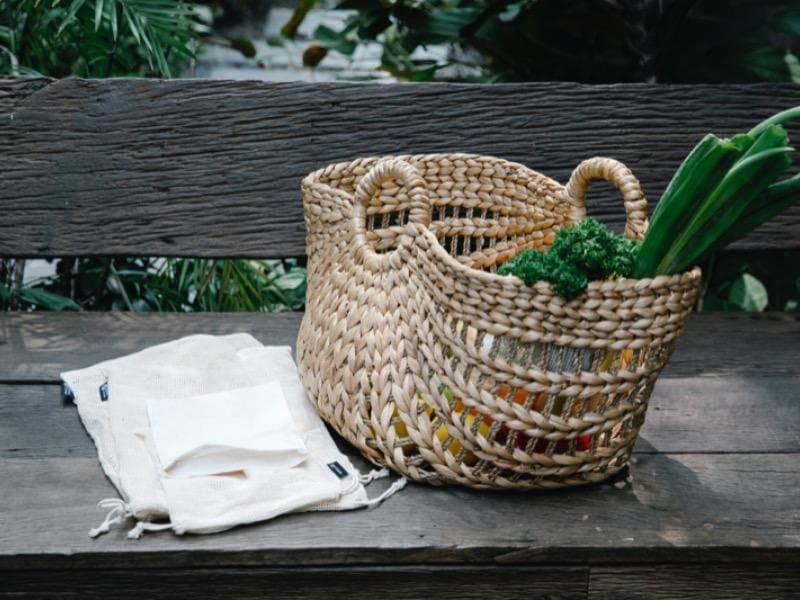Consideration on sustainability & the environment in grocery product choice is increasing in Indonesia, with concern for these issues higher than the global average. However, this positive attitude is not yet reflected in the behavioural change, according to the recent International Research Institute Network (Iris) Global Eating, Drinking & Sustainability Survey.
In the survey carried out by Illuminate Asia as the Indonesian representative of Iris, 6 in 10 Indonesians claim that they tend to choose products based on whether they are sustainable / environmentally friendly. However only 20% of Indonesians check whether a product packaging is recyclable while 60% claim that they have never checked. This relaxed attitude over plastic usage is exarcebated by the pandemic, with 3 in 5 Indonesians prefering to buy food that is wrapped in plastic due to the concern over safety and hygiene in the Covid 19 pandemic.
With the local government’s ongoing effort to curb plastic usage including banning plastic bags for grocery shopping in Jakarta, ban of single-use plastics in Bali, and more creative approaches such as swapping used PET bottles with bus tickets in Surabaya; a wider application of behavioural nudges seems necessary to narrow the gap between attitude towards sustainability and actual behaviour.
One growing body of knowledge is the field of behavioural economics which studies human decision making and how it is strongly influenced by context and prone to cognitive biases and irrational behaviour. Some behavioural economics concepts such as Status Quo Bias – the tendency to prefer the current state of affairs – help to explain why this attitude-behaviour gap towards sustainability remains as people have irrational preference towards the existing situation over newer options. The same concept, however, can help us to change behaviour by making environmentally friendly options as the default option. One example making the default plate size of hotels and restaurants smaller in order to reduce food waste by 20% as shown by Kallbekken & Saelen’s study in 2013.
The potential of behavioural economics is surging as governments such as Australia, the United Kingdom, Canada, Denmark, Singapore and the United States have set up dedicated behavioural insights entities. Finally, a more deliberate and systematic approach is very important to nudge the behaviour of Indonesians to adopt the sustainable lifestyle into their daily habit.
Survey Background:
Illuminate Asia if a member of the International Research Institutes (Iris) network – a global network of independent research agencies covering 33 countries. In 2021, Iris conducted its Global Eating, Drinking & Sustainability Survey – across 22 countries, including Indonesia. The survey was conducted globally between 12thJuly and 18th August, 2021.
Survey results:
A). Product sustainability: Around 6 in 10 (58%) of Indonesians agree that they choose products based on whether they are sustainable or environmentally friendly. This is slightly higher than the global average of 51% but behind other markets such as China, Bolivia, Peru and Switzerland.
Similarily, around 7 in 10 Indonesians claim to give a lot of consideration to sustainability when shopping for groceries. This is one of the highest scores globally, ahead of countries like USA, Japan, Australia; and ahead of the global average of 52%.
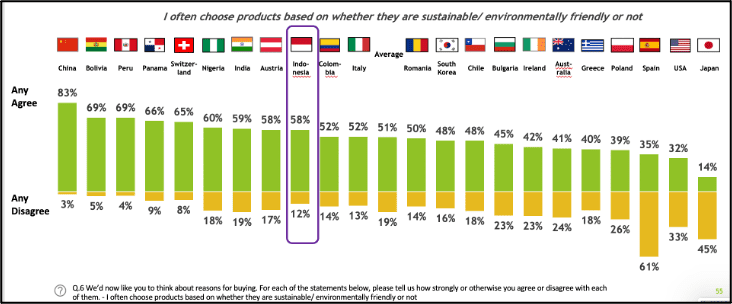
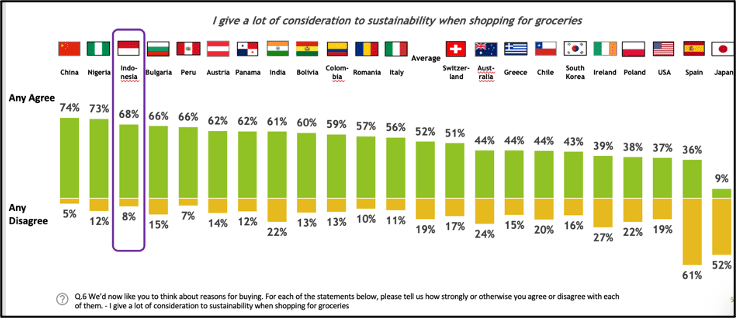
B). Consideration for Sustainable Packaging in Grocery purchase – However, half (50%) of Indonesians surveyed do not check if a product’s packaging is recyclable before purchasing. This is higher than the global average (42%) but still lower than markets such as Spain, China and India.
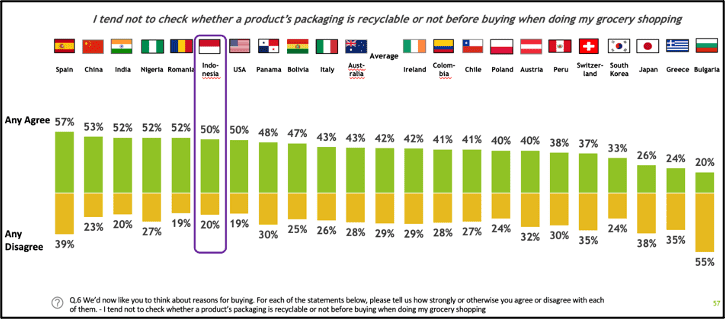
Additionally, the impact of Covid19 seems to have had a negative effect on consideration of plastic packaging amongst Indonesian consumers; with 3 in 5 Indonesians prefering to buy food that is wrapped in plastic due to the Covid 19 pandemic. This is much higher than the global average (40%) and similar to markets such as Panama, Peru, Bolivia, India and Spain.
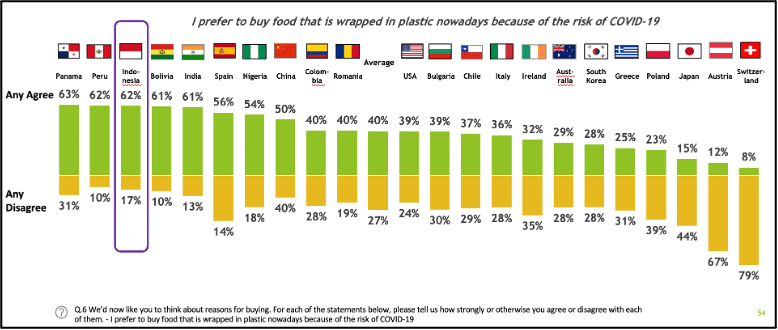
C). Localisation of manufacturing - Indonesian consumers are similar to the global average when it comes to checking if products are made in their country when grocery shopping – just under half (47%) claim to do so. This is in comparision with countries such as Switzerland and China, where two thirds are concerned about this issue.
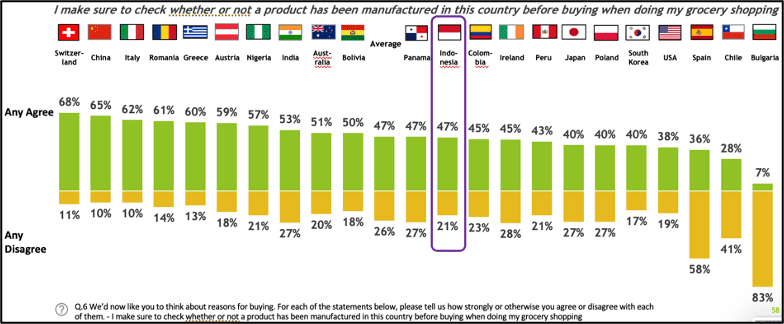
Reference: https://econpapers.repec.org/article/eeeecolet/v_3a119_3ay_3a2013_3ai_3a3_3ap_3a325-327.htm


